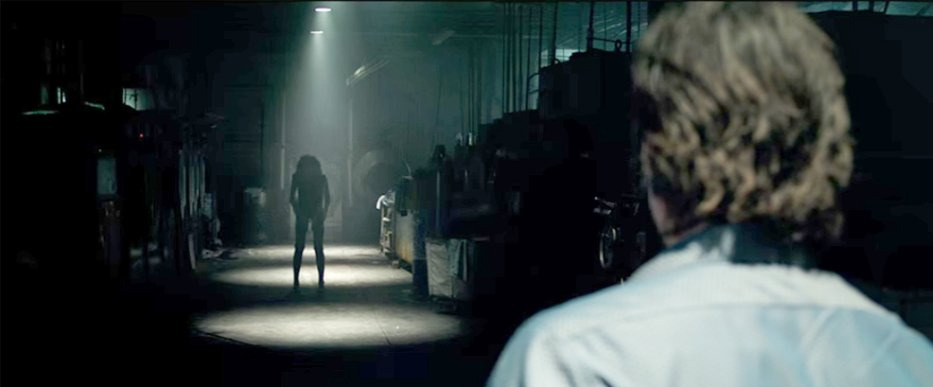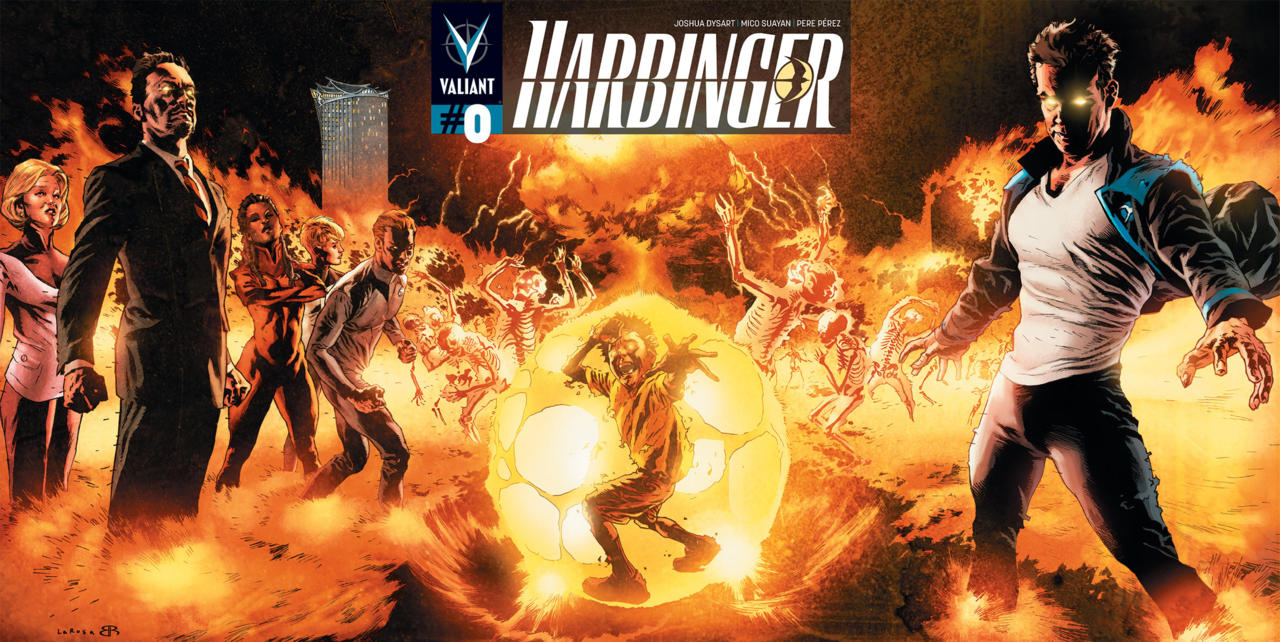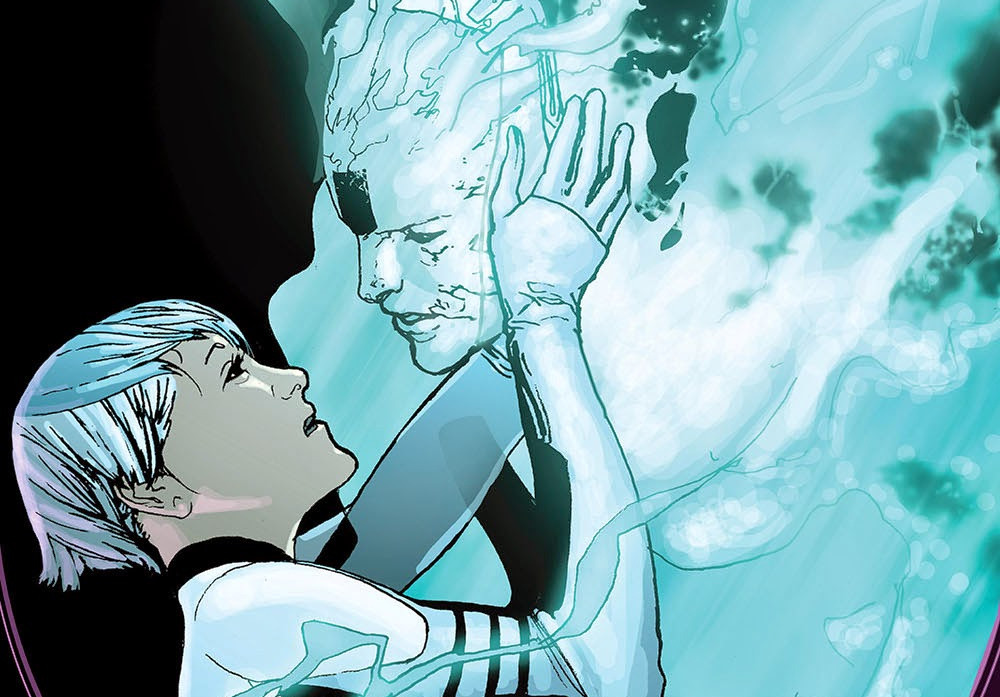Screenwriter Eric Heisserer was nominated for an Oscar this past award season for his work on Arrival. While he continues to write for Hollywood, with films like Lights Out and future films like Van Helsing, he's also started writing for comic publisher Valiant. During a recent visit to WonderCon in Anaheim, California, we talked to him about his transition in comics and his upcoming film projects.
GameSpot: You adapted Arrival from a story by Ted Chiang, and it's a very science fiction movie that isn't so science fiction. How far did you dive into linguistics and how language works for the film?
Eric Heisserer: I took what I learned from the novella, from Ted's work, and I dove in with a lot of reading and research on my own and got to where I was like, "Yeah, I know this s*** really well." Then I sat down with linguist and I was like, "I don't know anything at all. I'm not that smart."
The best thing to do in these kinds of situations is surround yourself with the people that do these kinds of things and just let them talk. Listening to how a theoretical physicist and a linguist talk about their work is a little bit like you and I talking about a new comic we love or a new movie that came out which we're infatuated with. For them, it's ideas. It's theories. It's whatever part of their work that they're really grappling with or excited about.
In a sense, would you say that it was a bit overwhelming with the intelligence in the room with you while working on Arrival?
It was! Here I am writing characters that are way smarter than I am, and they're facing the challenge of a lifetime. To try and make that believable was so intimidating to me. I didn't want to mess that up. The best thing I could do would be a surrogate for their approaches, their philosophies, and their ideas and find out how linguists would try and crack this in that situation. Some of that was in the [Ted Chiang] story, and that helped. Ted has done the heavy lifting for me. Time and again, if I ran into a dead end, I could go back to the story and say, "This is what he did."

You've also worked on a few horror films as well: Lights Out, The Thing (2011), A Nightmare on Elm Street (2010). Are you going back to horror? Is that something you gravitate towards as a writer?
It's the mafia, for me. Every time I think I'm out, they pull me back in with another horror movie. I got stuck in that lane, and I wrote other stuff, specifically to get out of that. But now that I am, the best material I find ends up being horror.
When [director] David Sandberg came to me and said, "I have an idea for how to make Lights Out a feature." I was like, "[sighs] Yes. I see that. That works. I can do that." And I adapted a novel by Josh Malerman called Birdbox, which if you haven't read it, read this novel. You will love it. It's holy s***, it's great. And that is, right now, my favorite unproduced screenplay out there. I'm really proud of that one and I hope it gets made sometime.
I saw you were attached to a new Van Helsing film.
Yeah. I wrote that with Jon Spaihts (Doctor Strange). We co-wrote that last year. We turned in a draft that we were so proud of and so excited for. I think we both knew our version of Van Helsing, which you hadn't seen before... It's like... take Mad Max, put him in contemporary times, throw him in the caravan, so he's "this close" to being homeless, and have him know everyone in the occult. [laughs] That's just cool. Have him be the MacGyver of the world. It's a little like Batman around the Justice League. Everyone else has ridiculous, god-like powers, and he's rich. And a poor Van Helsing isn't even that. We had a lot of fun with it, and I don't know what the situation is with that. We turned our draft, and it just takes forever in the system today. We'll see what happens with it.
With that character, we've seen a lot of different versions of him, and a lot of it gravitates towards action. He's a guy that lives in a world of horror. How much of your version of the character deals with that?
Quite a lot. His viewpoint, specifically, is even with horror. You're dealing with creatures and sometimes scientists that are larger than life. They're superheroes in a horror world, and so to speak, sometimes anti-heroes. When a big problem comes along, they're the ones to solve it.
What Van Helsing doesn't like is this culture of--which is almost like anti-superhero culture--we, as human beings, have to stop outsourcing our problems to people that are bigger than us or larger than us and expecting them to solve the problems. We gotta do it ourselves. We have to own up, take some responsibilities, find our balls, go and tackle whatever this thing is because the more we keep doing this and relying on somebody else, when they're done with one problem, they're gonna turn to feeding on us again. That makes him a bit of a radical, and I believe there was a moment when we were in the room talking about all the other monsters movies.
I brazenly said, 'The moment your monster movie bombs, Van Helsing is going to kill your guy.' [laughs] They didn't like that. [laughs] You start in one place and where you end up is the result of a million different decisions along the way, half of a which you're not even in the room for.
Do you feel more comfortable in the realm of adaptation or creating new stories?
I found that it's a little easier to get work in the adaptation world. I may shed a tear talking about the original pieces that I tried to launch that have fallen short because there's just not a built-in audience for them. I've gone as far as selling some things that I don't think will ever get made. But that's why I like comics because there's a market. I'm like, "Hey! I want to do a brand new title and introduce new characters," and they're like, "sure!"

What brought you to Valiant, writing comics?
I had been pulled in to consider adapting Harbinger for them and for Sony. And I had not seen any of the new run of Harbinger at Valiant, prior to that. And so the week before my meeting, I went and did a crash course, and I went and bought all of [Joshua] Dysart's books and dove in. It went from, "I'll consider talking about a comic book movie" that seems to be increasingly difficult to make in a time where there are a lot of comic book movies. And I fell in love. I was like, "I have to do this now. This is an American Akira. I've got to do this. Holy s***." I kept coming back to them.
I think, at one point in time, Dinesh Shamdasani [Valiant CEO] said, "Eric, you got the job already." But I kept auditioning through the final draft of that. Then I had so many ideas for Livewire in particular. I really fell in love with her as a character and had all these interesting notions of how she might use her powers and who she might mentor in her next life, so to speak. I told them I have enough to make her own book and they said, "Challenge accepted." Before I knew it, I was writing.
Did you talk to Dysart prior to getting into his work?
Yeah. I reached out to him. First to find out how the people were here, and second of all, what challenges he had with the characters, with Pete. He was helpful. He was also understandably critical of Hollywood screenwriters. The advantage is that my wife has known him for a long time. He could just tell me to take a leap.
Did you feel like there are a lot of challenges going from screenwriting into comic book writing? There are a lot of similarities in the format of the writing, but it is very different at the same time with things like pacing.
There is, yeah. Pacing is making sure where you are on the page and on the spread, having some idea of how the panels will flow without spoon-feeding your artist so you're not doing too much or too little. They love when you do too little because they go crazy, but you want to make sure the pacing works. And beyond that, you got to be so much more of a director and a writer at the same time to know where you want the focus. You can put that in the script for a comic book and really say, "This is the action we're going to highlight. This is the moment we're going to capture. This is the emotion I want to see drawn large." I think it makes me a better screenwriter. I come off of that and feel like I flexed some muscles there. For the first draft of the next thing I write, I'm like, "Yeah, I can direct this."
It does open your eyes going from screenwriting to comic books because it is so similar yet so different.
Totally. And the ability to… you gotta know how to be torse in your dialogue. You can't just prattle-off and give people soliloquies. They gotta earn that s*** on the page.
Because you wrote the Harbinger movie, how was the transition into comic book movies?
The transition is to be aware of every comic book movie that's come before you. And we went six months down a path and finally had a draft we got excited about. We took a month off and went back it and said, "This is still too much like X-Men." We can't do that. It required a reinvention, and I was down for that because I love the characters. I love the world so much. We finally figured out a sweet spot to land in, and as I mention now, we created the David Bowie of comic book movies, with Harbinger. It's off-center and it's punk and it's interesting. It just looks cool.
Do feel there's a lot of pressure to write a story for that movie that's like everything else even though there's a bit of over-saturation with comic book films?
Well, I gotta say it's easy to start with something familiar because you know what works, but then you realize when you go familiar, you're gonna get second place at best. If you really want to have a breakout hit, you gotta do something that's bold and different, impossibly controversial, and see how that works. I imagine it will still undergo another transformation before it ever gets to screen, but it started from the place of, "We know how comic books movies work, and we can write one like that," and we wound up throwing it all out and reinventing it. It was a hard process that I think yielded a good product. I'm really proud of it.

Who else within comics would you like to work with?
Doctor Mirage.
I think that's right up your alley.
I think it is! I may have a handful of great story pitches that never saw the light of day.
What attracts you to that character?
E: I like that her and her husband are kind of modeled after The Warrens, and I did a little work on Conjuring 2, so I've had a taste of the Warrens, and I was like, "I got to write that relationship again." I like that there is a voice that I find so comforting and inviting, so I want to try my hand at writing in the charatcer's voice, so to speak. They aren't X-Files stories, and they aren't Supernatural stories. They're Doctor Mirage stories, and I'm grateful for that.
Are there any personality or character types you struggle to write, trying to find their voice?
Yeah. I had trouble, not within any of the Valiant stuff. I felt pretty connected to those characters. But I've had trouble with… I gotta tell you how hard it can be to find the right voice for a character if they've been around for a long time. And therefore, are on a spectrum. So then everyone in the room will have their favorite version of that character. Then to try and write something that feels loyal to that but is a little bit of your own voice can be maddening.
Would it be fair to say that Freddy Krueger is one of those characters?
Yes. I was in trouble when I realized that one person in a lot of power in that room wanted a super-scary, serious Freddy, and the other one wanted the wise-cracking one.
Like Dream Warriors.
Yeah! Exactly. I'm like, "Oh, we're in trouble now." One is gonna keep pushing me to put in puns and wise-cracking comments, and the other is gonna be like, "No! You gotta have a goat that he slaughters!"
That is a very diverse character, if you look at that entire series. New Nightmare is a very serious version of Freddy, even if that wasn't technically Freddy. While the middle of the franchise is very wacky. Were there days where you were conflicted and didn't know which route to take?
I was. I was really paralyzed in moments with that. I gave it my best with the one pass I had at it, and then ultimately, maybe 5% of what I wrote wound up on the screen, which is how it goes, and by the way, that was my first credit. I was the little man in the room there, and there's really not a chance to talk much. I talk a lot about, in terms of screenwriting, that you either get hired as an architect or as a hard hat worker. But also, the reason I kept going back to New Line is that the guys at New Line, in particular, love genre, they know their stuff, they were advocates for me from the start, and I didn't have any problem with them. If you're listening, I love you, New Line.
I was very excited that Arrival got nominated for an Oscar. What was your experience with the show and the nomination?
It was an interesting experience. I've been watching the Oscars, like a ritual, for years and years. The first thing that struck me, when I got into that theater was, "That's actually smaller than I thought." It seems to huge on television, and yet, here, it's just a stage. It feels a little bit like some all-star episode of something because you look around and every face you recognize. "Oh my god, Samuel L Jackson is on my row. This is weird." Beyond that, it's just an award show, like anything else, and I've been to a few others earlier in the season, and there's something comforting about that.
Was it an incredible boost to your ego to know you're kind of on that echelon with everyone else?
It should have been. I think I have a malfunctioning ego, where I was more rooting for Barry Jenkins [writer of Moonlight] for a long while. We met each other on the road. I am a big fan of his writing, and his philosophy and his approach. Once I found out that he and I were sharing the category, I was like, "Well, obviously, I would vote for you, so…"
